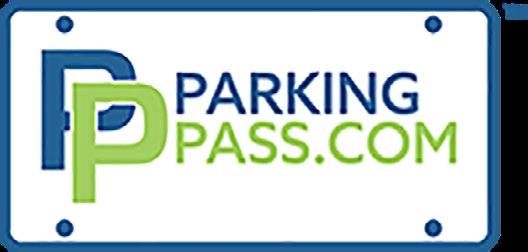
2 minute read
TOWING SOFTWARE & GPS PatrolWorks with LPR Private Property Parking Management – Reimagined
From PPI to Parking Management
Ranger’s innovative solution – PatrolWorks with LPR –resets expectations for effective private property parking management. It puts the pieces together with advanced permitting capabilities AND LPR enforcement in a single, fully integrated solution.
You now have a new, exciting opportunity for growth – extending your PPI business by offering your customers a single-source outsourcing option for their parking management. An option that delivers increased revenues and returns on their parking assets.
PatrolWorks with LPR equips you to be a full-service Parking Management Company that delivers exceptional value to your customers while increasing your own revenues and profits. You become your customers’ “go to” resource for parking -- managing the process from feature-rich paid permitting to “arms-length” LPR patrolling to responsible enforcement (ticketing and/or impounding).
You can serve more customers and lots, share in permitting processing fees, and benefit from more impounds without investments in more trucks.
By Jim Shellhaas, Founder/President-Ranger SST
PatrolWorks with LPR targets owners in two markets:
1.) Multi-Family Residential properties (apartments, HOA’s, campuses), and 2.) Pay to Park lots. Using the vehicle license plate as the permit enables the use of advanced license plate recognition technology for more efficient patrolling to identify vehicles in violation. A fully integrated mobile application – Co-Pilot - compliments the LPR system. Co-Pilot adds functionality to record any policy violation (not just permit related) such as expired vehicle registrations or flat tires. It can also be used to further document a violation detected by the LPR system by taking additional pictures that are automatically merged with the pictures from the LPR cameras.
Owners of Multi-Family Properties can achieve

multiple objectives:
Improve Safety and Security: Replacing stickers with
License Plates as the permit enables frequent (mobile) LPR patrolling. This in turn discourages illicit activity in the lot (reducing risks/liabilities) and provides greater management control of the vehicles in the community.
Increase Revenue and Property Value: PatrolWorks makes paid permitting simple. Parking becomes an easy add-on service, much like baggage fees on an airline ticket. Flexibility to differentiate pricing (e.g., carports, garages vs. surface lots) and to charge for guest permits adds to the upside potential.
Save Time at Properties: PatrolWorks includes mobilefriendly web apps (portals) that enable automated workflows, and for resident “self-service” management of their parking permission. Residents are able to transfer permits to a newly purchased vehicle or a temporary rental car and purchase permits for guests, This frees more time for managers for sales and marketing priorities.
Increase Resident Satisfaction and Convenience: The security improvements add to the comfort and peace of mind of residents in a societal environment where security has become an ongoing anywhere and everywhere concern. In addition, the self-service capabilities for permitting eliminates trips to the office.

Most owners of Pay-to-Park Lots are aware that their assets are not realizing their full revenue-generating potential. PatrolWorks enables owners to address the two most prevalent shortfalls:
Plugging Revenue Leaks: Lost revenue from vehicle owners who choose to Not Pay or Overstay are minimized. In contrast to most approaches, PatrolWorks replaces “hope” as a strategy by coupling permitting with frequent LPR enforcement. Vehicle owners scan a QR code and enter their LP to purchase a parking permit. LPR Enforcement then ensures policy compliance. Enforcement is typically impounding (vs. immobilization) such that the vehicles in violation are no longer consuming revenue generating spaces.
Capturing Pricing Opportunities: Many conventional offerings are limited to “fixed” pricing. It becomes too cumbersome or labor intensive to adjust to demand patterns. PatrolWorks accomplishes this digitally. For example, an owner of a pay-to-park lot in KC was able, digitally, to increase permit prices to $25/hr. for the Super Bowl celebration - from their computer!
And many pay-to-park opportunities are waiting to be discovered – such as employee lots after hours, and truck stops.











